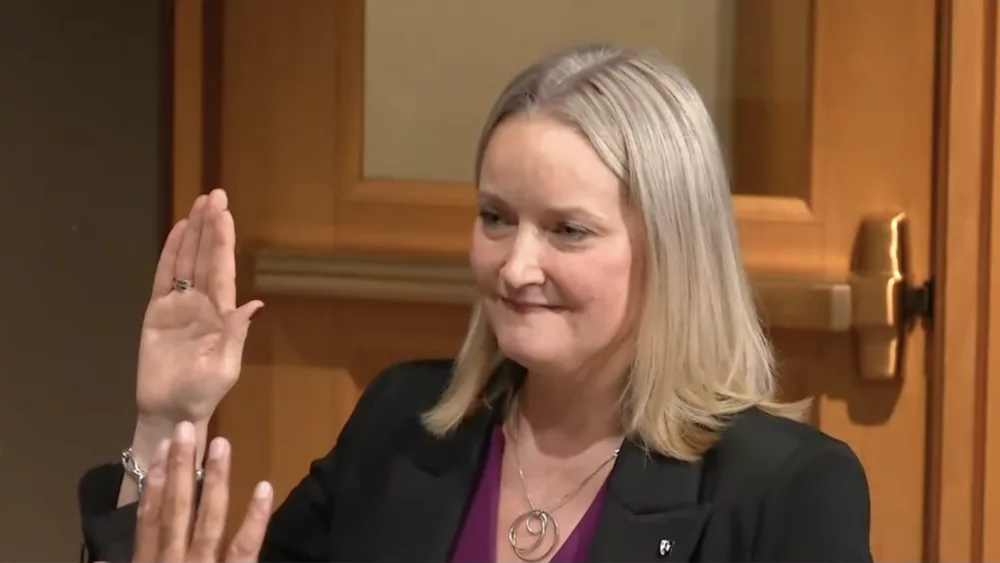(The Center Square) – In a divided ruling Thursday, the Washington Supreme Court determined that Washington State University did not share culpability in an off-campus rape involving two students in August 2017.
The incident involved a freshman female student who moved to WSU’s main campus in Pullman to begin studies. On Aug. 20, 2017, the student – described as intoxicated – was sexually assaulted by fellow WSU student Thomas Culhane while attending a party at Culhane’s off-campus apartment.
Culhane was expelled from the university and later convicted of second-degree rape, according to court documents. Until spring semester in 2017, Culhane had been a student at WSU’s Vancouver campus, where two complaints of sexual misconduct were filed against him.
One female student said Culhane sent her sexual comments via electronic communication. Another female student said Culhane put his hands between her legs while the two were seated together on a university bus trip. The school’s Office of Student Conduct determined Culhane violated several administrative codes, including sexual misconduct and harassment, violation of policy, and abuse of others.
During the investigation, Culhane was granted his request to transfer to WSU’s Pullman campus. Stipulations included WSU suspending Culhane for nine days beginning Aug. 1, 2017, and assigning him to write a paper on his understanding of consent.
In the aftermath, Culhane’s victim in the Pullman rape sued WSU on Jan. 28, 2020, in Thurston County Superior Court. She alleged several claims including negligence by the school for failing to control and protect students while knowing that Culhane’s past misconduct made future harm “foreseeable.”
WSU, in turn, moved the case to U.S. District Court and argued that the school “had no control and no duty” to protect because the sexual assault occurred off campus. The district court agreed. The plaintiff then appealed to the U.S. 9th Circuit Court of Appeals, which issued an “en banc” – or collective judicial – query to the Washington State Supreme Court.
Responding in Thursday’s ruling, a five-member majority of state justices agreed that Washington law does recognize a “special relationship” between a university and its students which requires a duty to “use reasonable care to protect students from foreseeable injury at the hands of other students.” However, the scope of that obligation is based in part on a student’s “presence on campus,” they concluded.
Unlike K-12 public schools which require attendance and where younger students are closely monitored, universities do not have similar protective custody over their adult students, Associate Chief Justice Charles W. Johnson wrote in the majority ruling.
“While sexual assaults are horrific, a university simply has no power to dictate students’ movements off campus and away from the oversight of campus security and administration,” Johnson stated, later adding, “We place no blame on (the victim). But a lack of blame on the victim does not establish blame and duty on a third party. The blame lies on Culhane.”
Justices Sheryl Gordon McCloud, Barbara Madsen, Mary Yu and Susan Owens concurred with the opinion.
In dissent, Justice Raquel Montoya-Lewis wrote that the majority’s “rigid premises liability approach does not comport with the modern reality of university student life.”
“This case would allow us to respond in a timely way to the reality of the prevalence of sexual assault and alcohol and other substance use in universities,” Montoya-Lewis wrote, also noting, “(WSU) has identified someone as a risk for harming other students, intervened, and understood him to be a continuing threat.”
At a minimum, Montoya-Lewis stated, the school could have warned other students of the risk posed by Culhane. Chief Justice Steven Gonzalez concurred.
In a separate dissent, Justices Debra Stephens and G. Helen Whitener agreed in part with Montoya-Lewis’ opinion but felt the case should proceed to trial and allow a jury to determine the “foreseeability” of Culhane’s potential to harm and whether WSU was liable in that regard.
WSU was represented in the case by the Washington Attorney General’s Office.
Amicus Curiae – or “friends of the court” – briefs were filed by the Student Organization for Victim Advocacy, the State Board of Community and Technical Colleges of Washington Council, the National Center for Victims of Crime, the Washington State Association for Justice Foundation, the Family Violence Appellate Project, and the Women’s Law Caucuses of Gonzaga University, Seattle University and the University of Washington.





